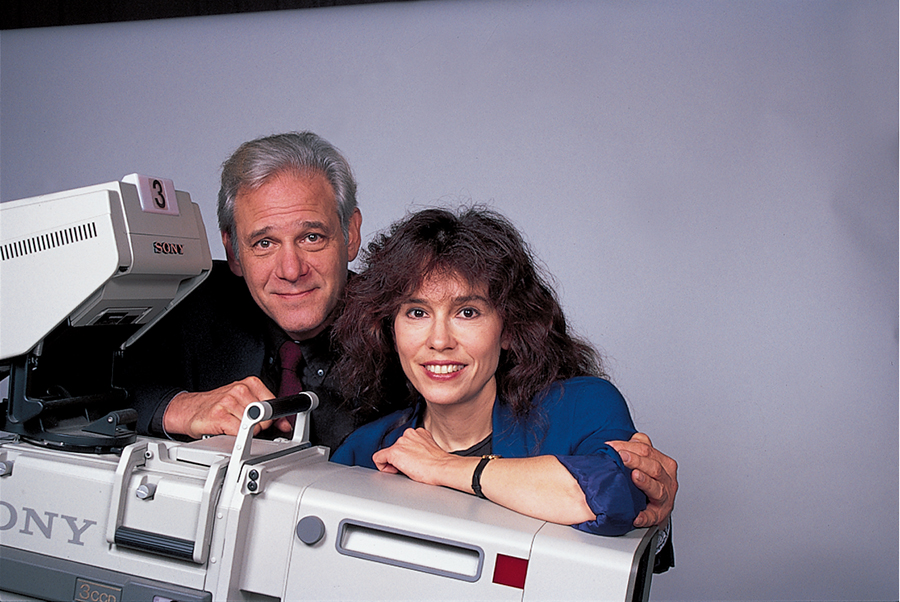A new documentary chronicles the greatest story in the history of college football
By Matthew Cooke
HQ 37 | WINTER 2000
On the evening of Nov. 14, 1970, 75 passengers including Marshall University players, coaches and fans buckled in as their chartered Southern Airways DC-9 approached Tri-State Airport. In the middle of another dismal season, the Herd had lost that day by three points to East Carolina. The week before they defeated Kent State. But in the four weeks before the Kent game, they had lost to Miami of Ohio, Louisville, Western Michigan and Bowling Green.
Coming in from the west, the plane skimmed the tops of trees two miles from the airport. It fell, cutting a 95-foot long swath through the black, leafless branches. The mangled wreckage spun for another 200 yards and burst into flames. No one survived.
Ten months later, in the final seconds of the home opener of the 1971 season, with the Thundering Herd down 13-9, Marshall quarterback Reggie Oliver rifled a screen pass to Terry Gardner. Tackle Jack Crabtree, an injured player for the 1970 squad, sliced down Xavier University’s Leo Burby and Gardner sprinted 13 yards to the end zone. A record Fairfield Stadium crowd of 13,000 exploded into chaos. The Young Thundering Herd, as they were known, had overcome the greatest odds ever faced by a college football team. On that day, September 25, 1971, with the oaks and maples about to drop their leaves along Charleston Avenue outside Fairfield Stadium, Terry Gardner caught a pass of hope, a pass still being caught today by Marshall players, fans and a community rising from ashes and pain.
Two filmmakers, Deborah Novak and John Witek, plan to capture that rise in a documentary tentatively titled “Ashes to Glory.” The film will air in November 2000 on West Virginia Public Television and will tell the story of the Young Thundering Herd, the 1971 team pieced together with freshmen, sophomores and anyone with shoulders broad enough to support a set of pads. Witek and Novak bring years of television and stage experience to this project. Witek, a New York City native, worked for many years as the creative consultant for Direct Response Television. He has written and produced commercials and public service announcements for national advertisers including The New York Times, Newsweek and U. S. News and World Report. He worked as a consultant for IBM and HBO, and has written articles for many publications including The Long Island Historical Journal and The New York State Archaeological Society Bulletin.
After graduating from Huntington High in 1973, Novak moved to New York and earned her B.A. and M.A. from New York University. She worked as a professional actress, appearing in numerous stage and film productions. She’s written and produced original plays, musical compositions and an opera entitled “Chat Room.” In May of 1999 she graduated from Marshall with a B.F.A. in music. She also plays the flute in the Marshall pep band.
Novak has always been a great ambassador for West Virginia. She helped form the West Virginia Society in New York City. She also makes public appearances nationwide promoting West Virginia and Public Television.
While their individual accomplishments are numerous, Witek and Novak are most famous for the work they have produced together. They have produced commercial projects for celebrities including Jane Fonda, Vanna White and Joe Montana. Most recently, they completed “Hearts of Glass: The Story of Blenko Handcraft” (1998), a documentary which details the history of Blenko Glass. The film received an Emmy nomination, first place in cultural programming at the 1998 Communicator Awards, the silver medal for arts programming at Worldfest-Houston and a Telly Award.
They also wrote and produced “New Music” (1996), a documentary that chronicles the creation of a piece of concert music. The film won first place in performance programming at the National Educational Telecommunications Association awards, first place in cultural programming by The Communicator Awards and Worldfest-Charleston. It also received a Telly Award.
A life-long Marshall fan, Novak has carried the idea for the Marshall documentary for 15 years. Witek says that while living in New York City “the most persistent idea Deb had was this story of Marshall football. We would be with our New York City friends and she would be talking about Marshall football. She would call her mother long distance and say ‘put the phone down near the television.’ And that’s how she would listen to Marshall games.”
After completing the Blenko project, Novak knew the time was right for the new documentary. The couple approached West Virginia Public Television in January, made a proposal to the university in February and the project was under way.
The filmmakers envision a dramatic opening sequence of Marshall’s successes followed by a short history of Marshall football. Local sports columnist Ernie Salvatore sketches the early years of the program. Viewers will glimpse gameday programs from the 1920s, see memorabilia from Marshall’s years in the Buckeye Conference and build to a close look at the 1970 team. Nate Ruffin, a defensive back on the 1971 team, provides personal reminiscences of those killed in the crash. The film then slows to a minute by minute account of the night of Nov. 14, 1970. Images and music, written by Novak and composer Jay Flippin, become erratic. Of the crash sequence, Novak says, “if all hell breaks lose in your world, it’s got to break lose visually in the film.” The program ends in an extended climax showing the Herd’s Division I-AA National Championships, MAC Championships, Motor City Bowl victory and rise in national rankings.
The basis for the film rests upon a simple question: Why do Marshall fans feel the way they do about their football team? To answer that question, Witek and Novak have researched and interviewed those close to the 1970 and 1971 teams. They have found that it is not the catastrophic plane crash that defines Marshall University, Marshall football and Huntington. Instead, it is the comeback which has prompted the popular cheer: “We are Marshall.” The majority of this story is devoted to that comeback, to recovery and the 1971 Young Thundering Herd, what Novak calls, “the greatest story in the history of college football.”
“When we interviewed the 1971 team,” Novak says, “I felt like each one was my brother. As a teenager, I watched them grow up. I saw a group of college aged kids and a community of adults who would not quit. In the face of the most tremendous adversity in the history of college sports, they were not going to give up.”
To Witek, it’s evident how these events formed characters. When he saw the emotions shared between Novak, Reggie Oliver, Nate Ruffin and other members of the 1971 team, he said he knew his work was focused on something great.
“The team we’re dealing with is almost mythic. It is an American story. It tells the story of this community and that time, but it goes so deep that there is something in it about the American character that it expresses. We now have the opportunity to tell this story through West Virginia Public Television to the whole country.”
Finishing the film comes with challenges. This privately funded project still needs $150,000 to be completed. Film of the 1971 victory over Xavier is also missing. Witek and Novak hope that someone will come forward with the coach’s film, home movies or still photos of the game that will help complete the film.
“We’re proceeding on faith that it’s going to be there. I have to tell the story that my heart tells me to,” Novak says. That story speaks as she picks up a 1970 Marshall program and flips through its pages. She pauses as she comes to the players’ photos. Her finger slowly moves from face to face, quietly considering the lives of those young men, their ruffled bangs hanging on their foreheads. “He was killed … he was killed … he was killed,” she says softly.
She then lifts the 1972 Marshall media guide. On its cover is a picture of Terry Gardner sprinting into the end zone to beat Xavier. Her finger rests for a moment on Gardner’s face as if reaching in to recapture some of the emotion on that day in Fairfield Stadium. “Look at him smile,” she says. “It’s almost as if he knew how far the Herd would rise.”
“Ashes to Glory” will air in November 2000 on West Virginia Public Television.





